We define ‘contributor’ as anyone who makes a contribution to our content, whether paid or not, whether on screen or not, but who isn’t either an employee of the ����ý, a freelancer (talent or sole trader) or a contractor to the ����ý.
What Can Go Wrong?
- You must consider any health risks carefully in your risk assessment and take steps to be satisfied that a contributor’s state of health or fitness is consistent with the tasks they are likely to undertake.
- Contributors who are being asked to perform activities that they are not accustomed to could be harmed.
Legal/����ý Requirements
- There are no specific legal requirements to draw to your attention; you must still apply the control measures that are relevant to your activity.
Control Measures
General Controls
- Carry out your risk assessment in the normal way considering the physical tasks (if any) that your contributors will be asked to undertake and record those on your risk assessment.
- Establish what controls are required to protect the health and wellbeing of all involved including the level of first aid cover required in the event of an accident or incident.
- Use the Task Based Matrix (below) to decide what level of health clearance is required.
- Use the suggested method of declaration and make sure contributors understand the tasks, the risks; and that they sign the form.
- File and store the form and programme information for 6 years.
- If a Doctor declaration is required this will take longer to obtain – again you should check that the Doctor has signed the form when you have received it and then file as above.
- The Doctor, in this circumstance, must be their own normal medical attendant (GP); or in some cases their specialist who will have access and knowledge of their current and past health.
- Always be aware of contributor’s day to day medical requirements or disabilities and ask what help they need.
Task Based Matrix
Division Specific Issues
- No division specific issues
FAQs/Did You Know?
- In the majority of cases contributors are not being asked to perform tasks that are any more onerous than they might encounter in normal day to day life, and in these circumstances there should be nothing further required in terms of fitness or medical checks except making individuals aware of the tasks that they will be asked to undertake and asking whether they have any special requirements such as during an emergency evacuation.
- Be aware that no medical or fitness check is 100% reliable in predicting whether health problems could occur.
- The Forms and further guidance are available on the right hand panel.
Forms and further guidance documents
The Forms and further guidance documents referred to above are available on the right hand panel. They are:
- Guidelines to Producers. The guidelines apply to contributors only. This document includes all the forms you'll need, as outlined below and the Task Based Matrix.
- Information for Contributors (level 1). The ����ý programme in which you are participating is likely to require a low level of physical activity.
- Contributors Self-Declaration of Fitness (level 2). This declaration should be completed by contributors to a programme who are due to undertake physical tasks which require a level of fitness above that of their normal day to day activities.
- Contributors Task Based Assessment (level 3). This declaration is only for contributors to a programme who are fully accustomed to undertaking the activities proposed in the production, along the lines described on the form.
Useful documents
Contributor topics
-
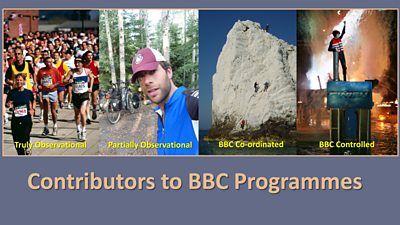
Contributors
Understanding our duty of care to our contributors. -
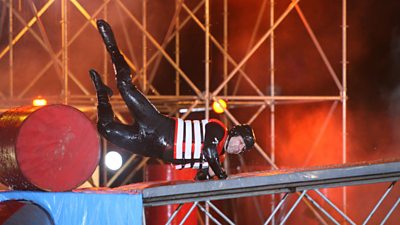
Contributors: Fitness to Participate
A guide to the health of contributors performing demanding activities.
Stunt topics
-
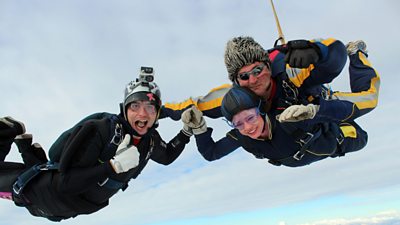
Adventure Activities & High Risk Sports
Setting up and managing activities for talent and contributors. -

Contributor Fitness to Participate
A guide to the health of contributors performing physically demanding tasks. -
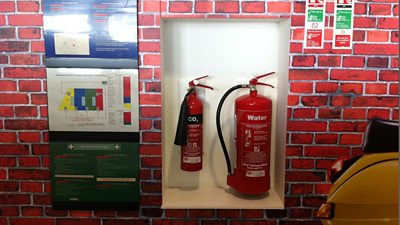
Fire Prevention Principles
A general guide to fire precaution measures. -

Firearms and Weapons
A guide to firearms and weapons used in production, and visiting sites where firearms or weapons are used under strictly controlled conditions. -
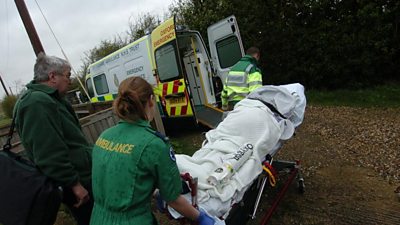
First Aid and Welfare on Location
Provision of first aid on location shoots. -
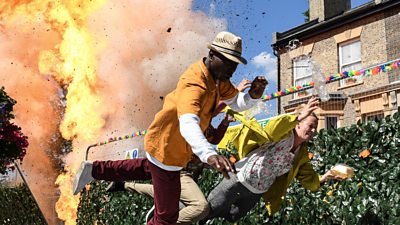
Special and Physical Effects
Guideline on how to arrange pyrotechnics, explosives, fire, smoke, rain or other effects for artistic purposes on productions. -

Riggers: Selection of
Competence criteria for riggers. -
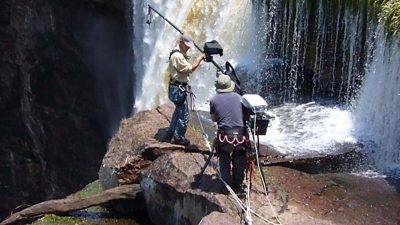
Working at Height: Rope Access Techniques
How to protect people working in exposed positions.
More from SSR
-
Your platform to record accidents, risk assessments, assurance monitoring and inspections
-
Safety Equipment Stores
Just one number to call: 020 3614 5155 -
����ý Safety Guidelines
An A-Z of ����ý's Health and Safety Guidelines -
Safety Advice Line: 0370 411 0464 Email: safety@bbc.co.uk
Events guidance - key links:
- Exhibitions
- General Guidance
- Indoor Location Recce Checklist
- Outdoor Location Recce Checklist
- Major Incidents & Emergency Planning
- Marketing and Promotional
- Noise Exposure
- Planning and Management
- Responsibilities
- Responsibilities Form
- Laser Lighting Effects
- Strobe Lighting
- Temporary Stages and Rostra
Health topics - key links:
- (����ý network only)
- Contributors Fitness to Participate
- Display Screen Equipment (DSE)
- (����ý network only)
- First Aid and Welfare on Location
- International Travel - Risks & Health
- Manual Handling
- Mental Health: Homepage
- (����ý network only)
- Personal Health and Wellbeing
- Pregnancy
- Psychological Trauma Support & Trauma Risk Management (TRiM)
- Tiredness and Fatigue
- Travel Health Contacts
����ý High Risk - key links:
- CBRN and Industrial Spills
- Covert Filming
- Crisis Management and Security Support
- Demonstrations, Protests and Crowds
- Disaster Coverage
- Door Stepping
- (����ý network only)
- (����ý network only)
- Public Order
- Safety Equipment Stores
����ý Journalism - key links:
����ý Productions - key links:
- Aerial Filming and Airfields
- Animals: Displaying and handling for performance
- Boats: Working on
- Children and Young People
- Driving
- Electrical Equipment and Systems
- First Aid and Welfare on Location
- Food Safety (Cooking and Catering)
- Remote Location Working
- Roads and Streets: Working by
- Security of Productions on Location
- Stunts
- Tiredness and Fatigue
- Unmanned Aerial Systems (UAS aka Drones)
- Vehicles: Recording in, from and around
- Working at Height: Mobile Elevating Work Platforms
- Working at Height: Tower Scaffolds
����ý Radio - key links:
- (����ý Network only)
����ý Security - key links:
����ý Sport - key links:
About this site
This site describes what the ����ý does in relation to managing its health, safety and security risks and is intended for those who work directly for the ����ý.
It is not intended to provide instruction or guidance on how third parties should manage their risks. The ����ý cannot be held liable for how this information is interpreted or used by third parties, nor provide any assurance that adopting it would provide any measure of legal compliance. More information
Some links on this site are only accessible when connected to the ����ý network

